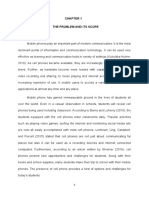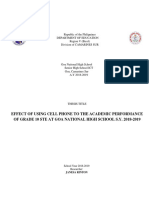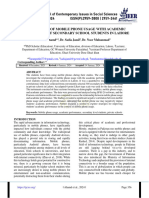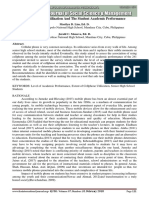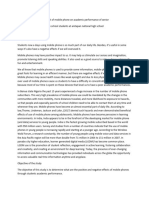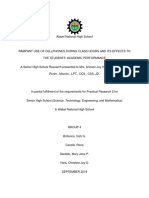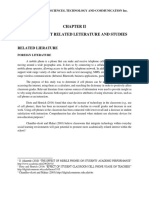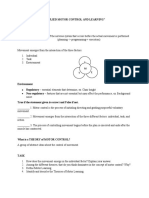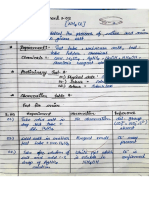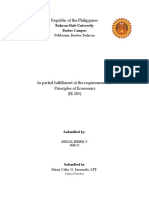0% found this document useful (0 votes)
50 views3 pagesResearch Introduction
This study examines how students at Polangui Community College use mobile phones in class and how this affects their academic performance and classroom participation. Previous research has found both positive and negative impacts of mobile phone use on learning. While phones can provide educational resources and opportunities for collaboration, excessive use can decrease productivity, concentration, and engagement in class activities. The study aims to understand mobile phone usage at Polangui Community College and provide suggestions for managing phones in the classroom to minimize distractions and promote student success.
Uploaded by
Jirah Joy PeañarCopyright
© © All Rights Reserved
We take content rights seriously. If you suspect this is your content, claim it here.
Available Formats
Download as DOCX, PDF, TXT or read online on Scribd
0% found this document useful (0 votes)
50 views3 pagesResearch Introduction
This study examines how students at Polangui Community College use mobile phones in class and how this affects their academic performance and classroom participation. Previous research has found both positive and negative impacts of mobile phone use on learning. While phones can provide educational resources and opportunities for collaboration, excessive use can decrease productivity, concentration, and engagement in class activities. The study aims to understand mobile phone usage at Polangui Community College and provide suggestions for managing phones in the classroom to minimize distractions and promote student success.
Uploaded by
Jirah Joy PeañarCopyright
© © All Rights Reserved
We take content rights seriously. If you suspect this is your content, claim it here.
Available Formats
Download as DOCX, PDF, TXT or read online on Scribd
/ 3









